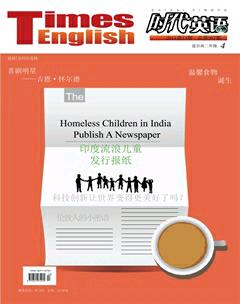温馨食物
COOKING is a sensual experience. It has the power to comfort, unite and anchor a family in tradition. In his new novel, Amit Majmudar uses food to tell a larger story about life, death and the immigrant experience.
At the centre of the book is an unnamed Indian mother who makes dahi the traditional way, curdling each new pot of yogurt with a spoonful from the one before it. To ensure this “dynastic succession”, she smuggled some in a test-tube when she emigrated from Gujarat to Ohio. Now, with two grown children who have their own families, she “colonises her grandchildren with the magical cultures”. This small but significant attempt at cultural continuity becomes more meaningful when she is diagnosed with terminal cancer. Feeding her family allows her to maintain some normality during “the slow sloppy business of dying”.
As the narrator grows weaker, her daughter, Mala, becomes determined to learn all of her mothers recipes. A doctor like her father, she is strong-willed but deferential. They fight, but they always have done. “Harshness, paradoxically, is intimate.” The ailing mothers son Ronak, however, rebuffs the familys traditions. He lives as a “gambling banker” in Manhattan with his pale-faced American wife. His affection for his mother is more distant. Despite these slight fractures, the mother longs to preserve the semi-dysfunctional status quo. But her cancer casts everything in shadow, and tests the relationships that matter most.
The narrative is slow, but sumptuous with recipes and reflection. Mr Majmudar, who is also a poet, imbues his prose with phrases and metaphors that linger with the warmth of spices. Tension rises from the pages as his characters struggle to enjoy the present with the knowledge that everything must soon change. But the simple repetition of cooking and eating brings the family together, softening the hard edges like boiling water on rice.
Was America better for the family or did the move make everything harder? “This country gave us clean quiet luxury and charged us nothing but our children,” the mother observes. Mala and Ronak are in many ways alien to their parents, and sometimes to themselves. Ohio has offered them wealth and opportunity. For nourishment and love, they have the bowls of dahi and dishes of bhindi at the family table.
烹飪是一种感官体验。传统上认为,它具有慰藉、黏合和支撑一个家庭的力量。 在他的新小说中,艾米特·玛吉穆德通过食物讲述了一个关于生命、死亡和移民经历的宏大故事。
故事的中心是一位无名的印度母亲,她用传统的方式制作家乡的酸奶,即从之前一罐酸奶中取用一匙来发酵新一罐酸奶。在她从古吉拉特邦移民至俄亥俄州时,为了保证酸奶的“世代更迭”,她悄悄用试管带入了一些老酸奶。现在,随着她的两个孩子长大成人并组建家庭,她“开始给孙辈们灌输这神奇的文化”。这举动虽小,却对文化连续性非常重要,尤其当她被确诊为癌症晚期时,更显得意义重大。在“缓缓步入衰亡的过程中”,给她的家人灌输这种文化使她在一定程度上保持了正常状态。
随着主人公渐渐衰弱,她的女儿马拉决心学习她所有的食谱。和她父亲一样,她是位医生,意志坚强却又谦恭。她们总是争执不断。“很矛盾的是,这种摩擦也是亲密的表现。”患病母亲的儿子罗纳克却抵制家庭的传统。他是一个“投行家”,和面青唇白的美国妻子住在曼哈顿。他对母亲的感情比较疏远。尽管有些许裂痕,这位母亲依然渴望能维持这半失调的家庭现状。但癌症给一切都笼罩上阴影,考验着最重要的亲情。
小说叙事节奏很慢,但充满了对烹饪以及沉思的描写。玛吉穆德也是一个诗人,短语和隐喻混合着调味品的温香,弥漫在字里行间。文中的角色努力享受着当下,相信一切将会很快改变,情节愈加充满张力。不过烹调和用餐的简单惯例能让一家人聚在一起,软化矛盾,就像沸水煮大米一样。
来到美国让这个家庭更好,还是让一切更糟?母亲评述说:“这个国家带给我们清静祥和的享受,没有索取我们任何东西,但带走了我们的孩子。”马拉和罗纳克与他们的父母在很多方面都大相径庭,有时候与他们自己都格格不入。俄亥俄州给予了他们财富和机遇。至于食物和爱,家里的餐桌上有一杯杯的家乡酸奶和一碟碟的羊角豆。

